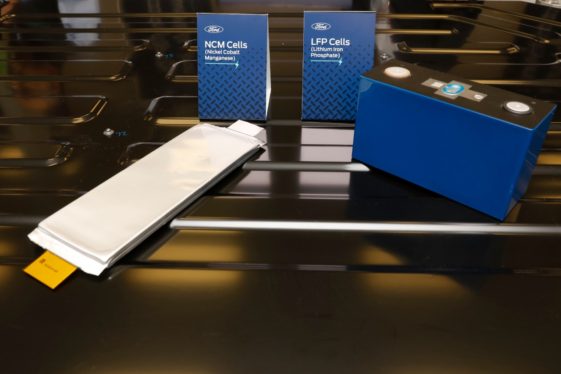
Enlarge / On the left, a nickel cobalt manganese battery cell; on the right, a lithium iron phosphate cell. (credit: Ford)
The US is getting yet another new electric vehicle battery factory. On Monday afternoon, Ford announced that it will spend $3.5 billion to build a new plant in Marshall, Michigan. Significantly, this new site will make lithium iron phosphate (also known as LFP) cells, which are both cheaper and longer-lived than lithium-ion chemistries like nickel cobalt manganese (NCM), albeit at the cost of some energy density and cold weather performance.
“Ford’s electric vehicle lineup has generated huge demand. To get as many Ford EVs to customers as possible, we’re the first automaker to commit to build both NCM and LFP batteries in the United States. We’re delivering on our commitments as we scale LFP and NCM batteries and thousands, and soon millions, of customers will begin to reap the benefits of Ford EVs with cutting-edge, durable battery technologies that are growing more affordable over time,” said Jim Farley, Ford president and CEO.
Although LFP cells were originally invented in North America, patent licensing deals have meant that, until now, they’ve mostly been the preserve of Chinese-market EVs. In this case, Ford has signed a licensing agreement with Chinese battery firm CATL, allowing it to make LFP cells.
Read 3 remaining paragraphs | Comments



